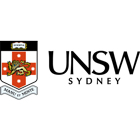Graduate Certificate in Infectious Diseases Intelligence
Graduate Certificate in Infectious Diseases Intelligence
Overview Population growth, urbanisation, increased travel and migration, and changing ecosystems are just some of the factors contributing to changes in infectious disease epidemiology. There is an urgent need to develop the capacity of the health workforces knowledge of the theory and principles of control of infectious diseases in this…
Categories
COURSE DESCRIPTION
Overview
Population growth, urbanisation, increased travel and migration, and changing ecosystems are just some of the factors contributing to changes in infectious disease epidemiology. There is an urgent need to develop the capacity of the health workforces knowledge of the theory and principles of control of infectious diseases in this evolving scenario.
The Graduate Certificate in Infectious Diseases Intelligence develops your skills in effective prevention or control of infectious diseases. You’ll be exposed to a range of courses including Infectious Disease Intelligence and Bioterrorism and Health Intelligence.
This program, offered entirely online, articulates with the Masters of Infectious Disease Intelligence, Master of Public Health in Infectious Diseases Epidemiology specialisation as well as the Master of International Health.
Key features
This program will update and improve your skills and knowledge of infectious diseases.
The entirely online study program will enable you to effectively integrate learning into your daily professional life.
Potential careers
Epidemiology
Infection control
REQUIREMENTS
Applicants are required to have either:
An undergraduate degree in a field relevant to public health or health management (see list below) and two years full-time professional or volunteer experience. This may also include equivalent professional experience acquired as part of a degree of 4 or more years duration (e.g. MBBS, MD)
OR
An undergraduate degree plus an honours or postgraduate degree in a field relevant to public health or health management (see list below)
Examples include, but are not restricted to, medicine, nursing, allied health, health sciences, biomedical sciences, dentistry, social work, sociology, behavioural and social sciences, psychology, marketing, human services, emergency services, environmental health, veterinary science, health administration, business, management, engineering, law, science, mathematics and statistics, economics, policy studies and development studies.
English Language Requirements:
IELTS: 6.5 overall (min. 6.0 in each subtest); TOEFL IBT (Internet Based): 90 overall (min. 23 in writing, 22 in reading, listening and speaking); Pearson (PTE – Academic): 64 overall (min. 54 in each subtest); C1 Advanced Cambridge: 176 overall (min. 169 in each subtest); C2 Proficiency Cambridge: 180 overall (min. 180 in each subtest); UNSW Global University English Entry Course (UEEC): Successful completion with a minimum overall grade of C+ and a minimum grade of C in the writing component.
EDUCATIONAL INSTITUTION
The University of South Australia is a globally connected and engaged university with industry-informed teaching and research that is inventive and adventurous. Ranked in the world’s top 50 under 50^ and with 100% of assessed research rated at or above world-class*, the University is young, innovative and offers students the chance to gain real-world experience.Focused on life beyond the classroom, the University of South Australia offers a practical approach to teaching and learning. Degrees are designed in partnership with industry, giving students opportunities to gain the latest insights and trends and ensuring they graduate career ready.^Ranked in the World’s Top 50 Under 50 – Ranked #29, 2021 QS Top 50 Universities Aged Under 50 and Ranked #46, 2022 THE Young University Rankings*2018 Excellence in Research for Australia (ERA), 4-digit Fields of Research




